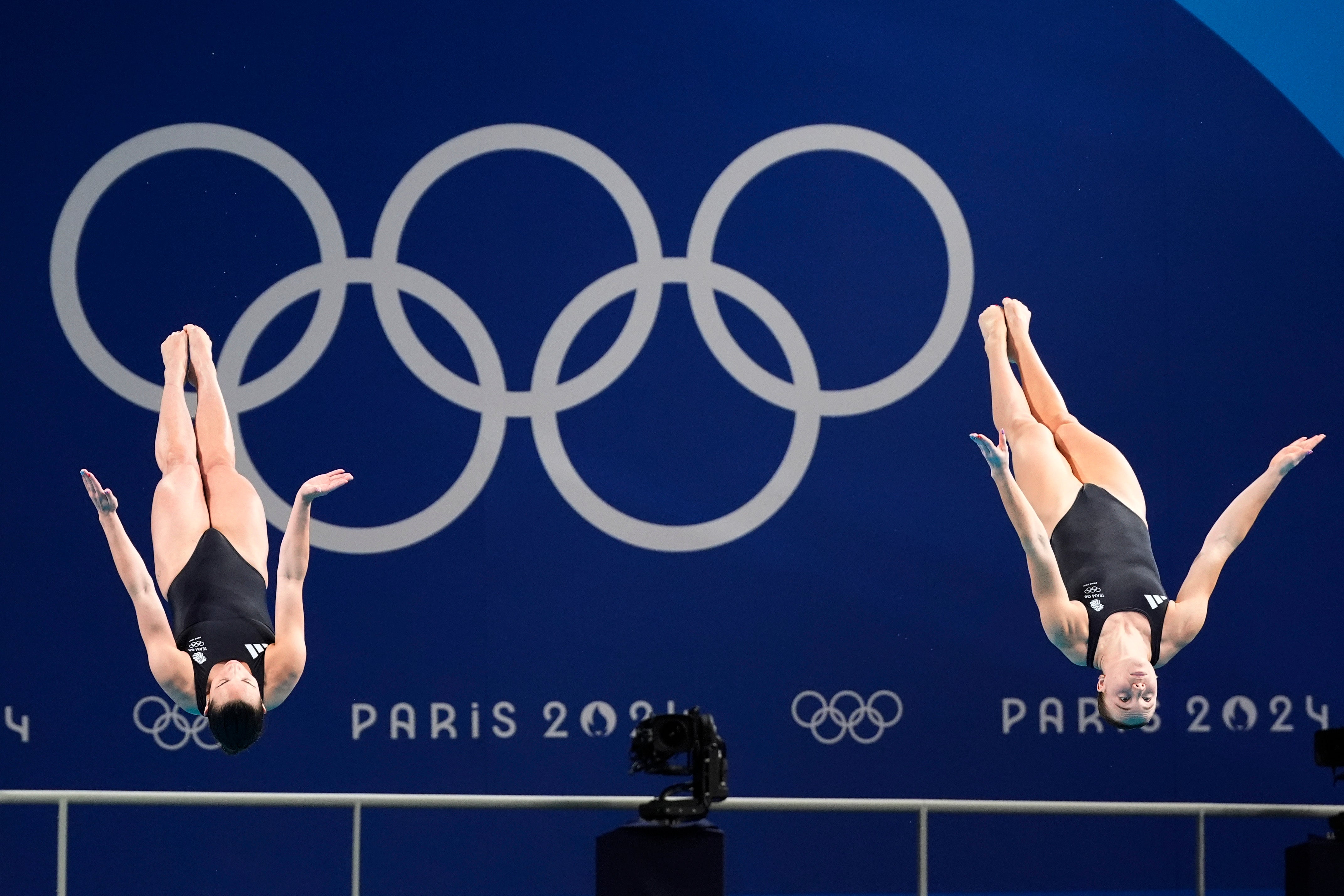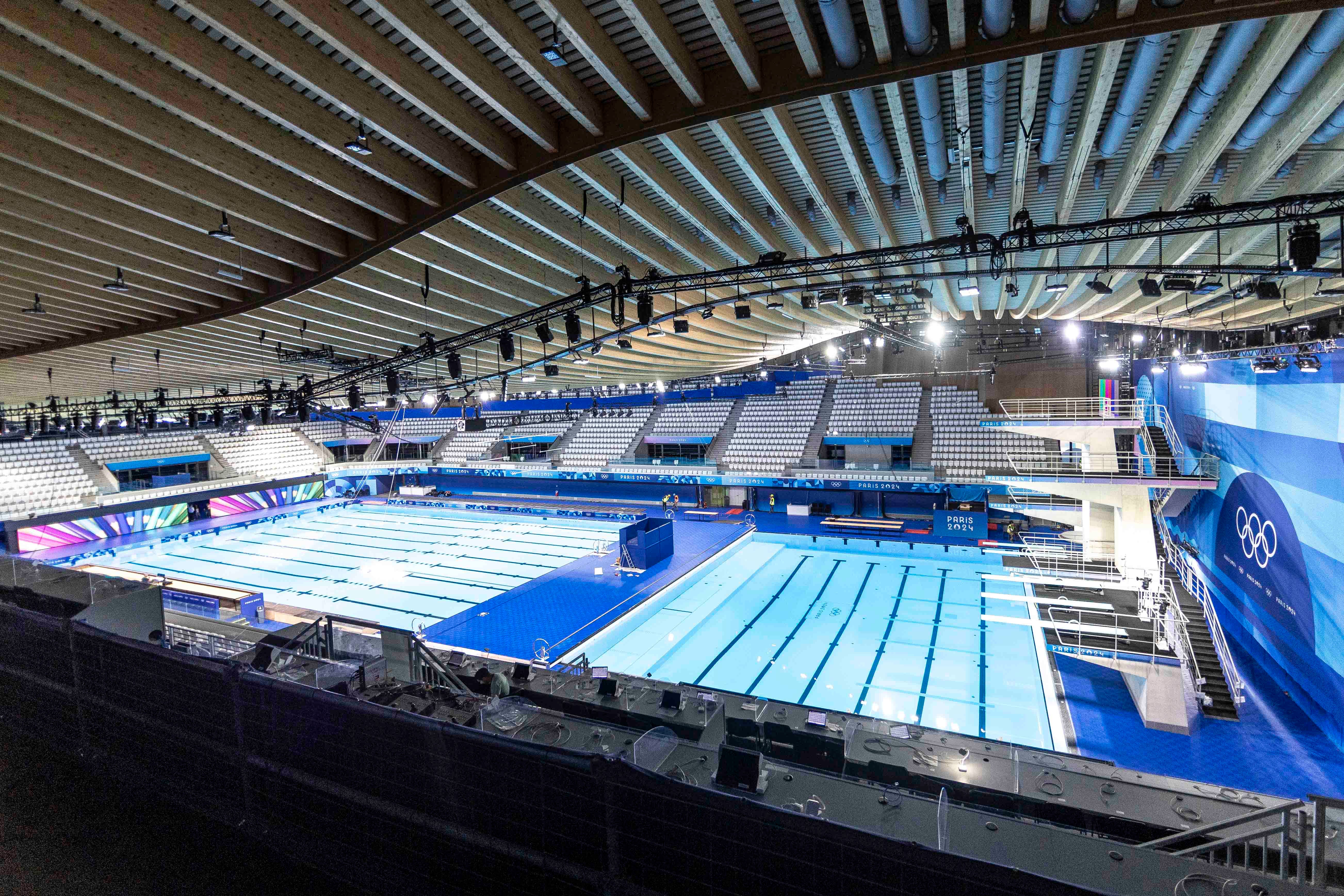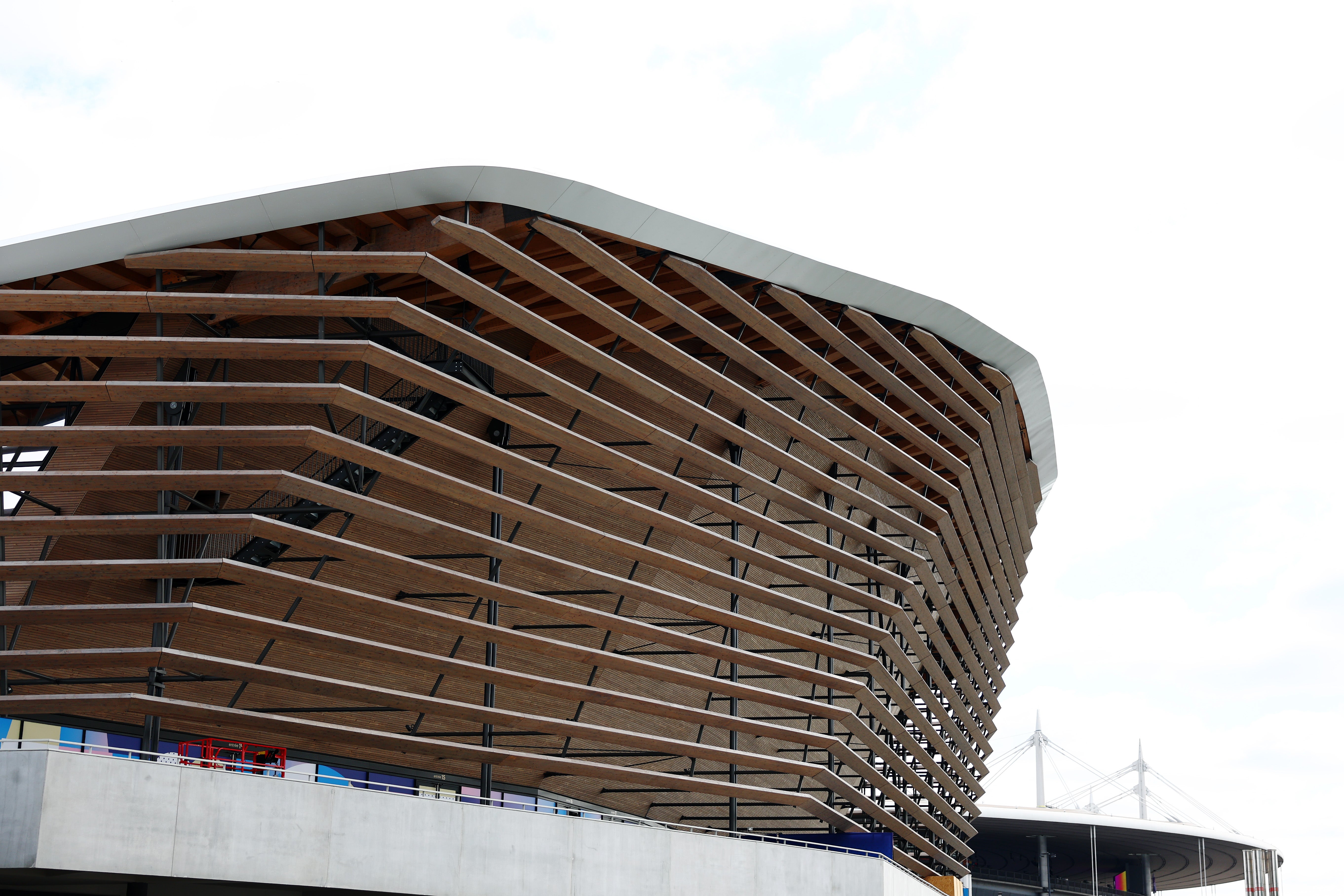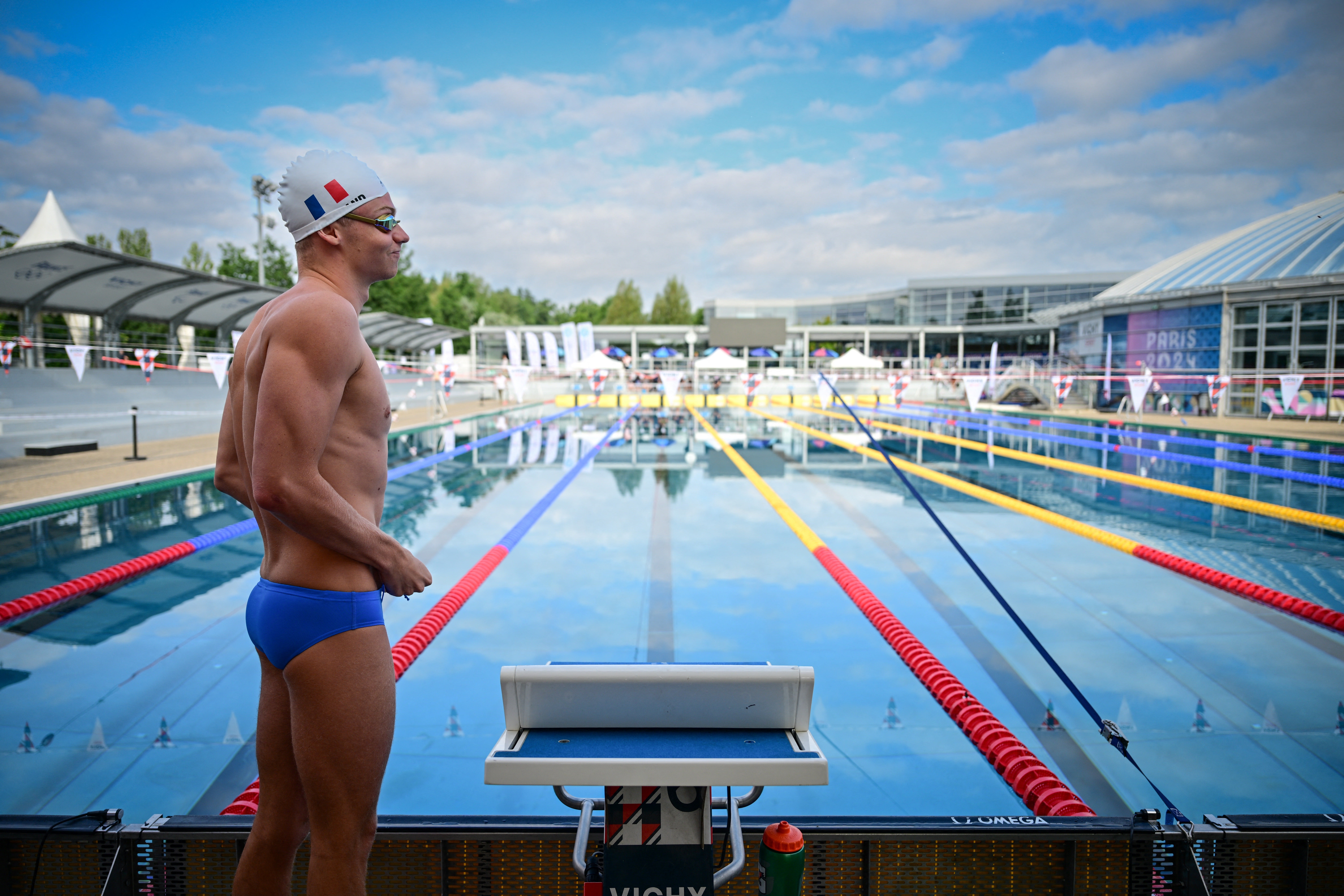The curious case of Paris’s £150m Olympic Aquatic Centre – which won’t host a single swimming race
Paris’s original Olympic bid vowed to build a 15,000-capacity stadium where swimming would take centre stage, writes Lawrence Ostlere. So why is it taking place in a concert hall?


One of the defining features of Paris’s bid to host the Olympic Games was its simplicity: this great city already had the facilities required to host, and so many of the problems associated with building new venues – the spiralling costs, the environmental demands, the white elephants left scattered a decade later – would not be in play. Only one venue needed to be built from scratch: the Aquatics Centre.
The proposal written into the original bid was for an Olympic Aquatics Centre to seat 15,000 spectators, the minimum number required by swimming’s governing body, Fina, for major international events.
It would be based in the deprived northern suburb of Seine-Saint-Denis, the second poorest neighbourhood in France, an area of high crime and poverty, of low education and life expectancy, where only 50 per cent of children under 12 can swim. Long after the Games, the venue would leave a lasting legacy.
Then, in 2020, the plan changed. It became clear that the original budget of €70m (£60m) was nowhere near what was required to build a small stadium fit for the Olympic Games and disassemble it afterwards. So organisers took the decision to complete the project with only 5,000 seats, in order to cap their overspending at around €175m (£150m).
It meant the Aquatics Centre no longer met Fina’s 15,000-seat requirement for major events, or even came close. And so Paris built a brand new Olympic venue, complete with a brand new Olympic pool, that will not host a single swimming race.


The Aquatics Centre will still host diving, synchronised swimming and some water polo qualifying rounds. It is a striking piece of architecture, made of long timber frames which support a huge rooftop solar farm to power the venue, and inside it is full of recycled material to meet France’s pitch for a green Games.
But the swimming itself has been relocated to the west of the city at La Defense Arena, a multi-purpose venue mainly used by rugby club Racing 92 and for staging concerts. Taylor Swift performed her Eras Tour there in front of 180,000 people in May, before it was rapidly transformed into a swimming venue holding 15,000 fans for the Games.
Seine-Saint-Denis will still get its legacy pools, facilities that are a welcome boost to the area. Yet real legacy requires not only facilities but inspiration, and with the greatest respect to diving, synchronised swimming and the qualifying rounds of water polo, the stardust of aquatics’ biggest draw – its swimming champions – will now be sprinkled somewhere else.
La Defense Arena is based in Nanterre, a suburb more commonly known for its student population and its collection of skyscrapers. And it is here that the French prince of the pool, Leon Marchand, could become the face of the Games. The 22-year-old Marchand swept last year’s World Championships, winning gold in the 200m and 400m medley events as well as the 200m butterfly. He is going for four golds in Paris and carries a nation’s expectations on broad shoulders.

Should he deliver, the pool will be a hallowed place, somewhere sporting history was made, which makes it all the more bizarre that his story will not unfold in Paris’s impressive new Aquatics Centre.
It is one symptom of an ailment that has troubled the Olympics for more than half a century, that of uncontrollable spending. Debt from the 1976 Montreal Games was finally paid off in 2006, and most hosts have faced the same problem ever since. London, Rio and Tokyo all cost upwards of £8bn and each spent far more than they estimated, and although Paris 2024 will be cheaper due to its ‘build nothing’ approach, it is still set to come in at £6bn, around 25% over budget.
Organisers stand by their decision to move swimming’s home. “In the past, Olympic pools with a capacity of 15,000 have become white elephants because they are too big,” says Denis Navizet, event manager of the La Defense Arena. “We thought about building a pool with a demountable section, but that was too expensive. La Defense Arena was the most reasonable and efficient choice.”
La Defense Arena was originally meant to host gymnastics – now moved south to Bercy – and it should be pointed out that it should still make a grand venue for swimming. In the 60 days following Taylor Swift’s concert, it was stripped down and remade from the Games in what Navizet calls an “architectural feat”.
The biggest challenge was a giant media stand in the centre of the arena. “It took almost 20 kilometres of scaffolding to build it, it is 22 metres high and will house 1,000 media, which is colossal,” he says.
The Paris 2024 organising committee insisted to The Independent that their decision has “ensured that the Olympic Aquatics Centre is more adaptable for the Seine-Saint-Denis area and will leave a tangible and manageable legacy for the local community” – although leaving a pool here for the community’s benefit was always in the plan.
Fans in Paris will still enjoy the show. TV viewers may not know the difference. But seven years on from Paris’s compelling Olympic bid, the Aquatics Centre has become the curious case of the landmark venue which won’t host its flagship sport.






Join our commenting forum
Join thought-provoking conversations, follow other Independent readers and see their replies
Comments